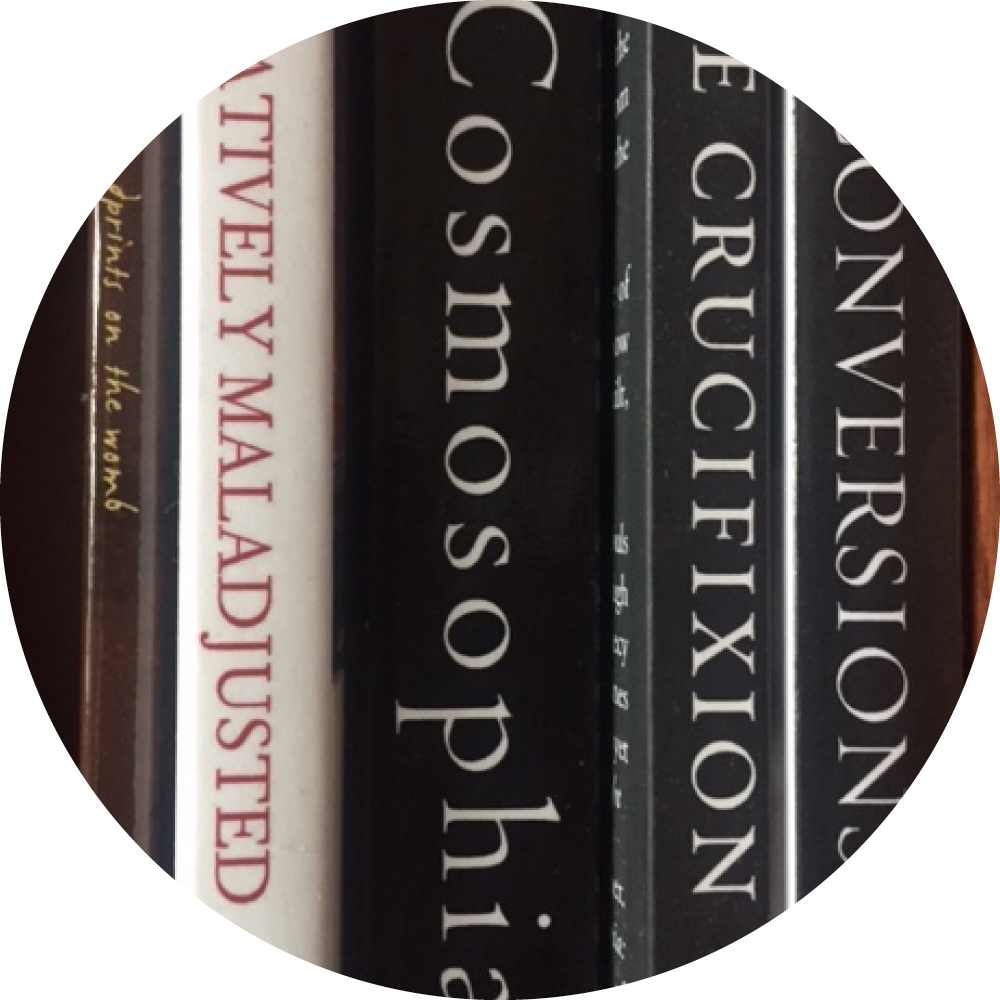The End of Capitalism
By Theodore Richards
The following article contains excerpts from the forthcoming book, The Great Re-imagining: Spirituality in an Age of Apocalypse available through Homebound publications.
The new economy had to be embodied, value had to be expressed and experienced as the sensuous. The problem he had, as he sniffed the sea and rode in darkness towards a possible death, was that he had no words for this economy. For every word he uttered seemed to occupy some non-spatial space, a place that existed only in the mind. Words referring only to other words, just as in finance money made money, without any bodily-experienced product. In darkness, he reflected on his great mission: to find words – was it poetry he was after? – that could actually only be spoken from a body. In darkness, he understood that in the economy upon which he’d built his career was an economy without oikos. Without the body to share in the process of production, it was as if the world had disappeared.
– The Conversions
Since the end of the Cold War, there has been a consensus among the political and media mainstream that “There Is No Alternative” to Capitalism, particularly the form of capitalism one finds in the context of globalization. “The Free Market”, it is said, will solve all our problems, and become the organizing principle the world over. The conflation of Capitalism and freedom itself has muted any debate that would suggest otherwise. At the same time, recent economic crises coupled with a growing clarity that unlimited growth is destroying the biosphere may suggest that the Capitalist era is coming to an end.
To understand this, we have to find a little bit of clarity about what Capitalism is and how it has come to dominate the planet. At its core, Capitalism is less about a free market than it is driven by systems of debt and corporatism for growth and expansion. Its roots lie in colonialism, an era in which indebted corporations and governments used the power of the gun to extract resources and exploit peoples (“markets”) around the world. Capitalism breeds an insatiable need to expand and grow – consequently it requires a cosmology of consumption: a culture that understands the human being as primarily deriving meaning through what it can buy.
But where does this need for expansion lead when there are no more nations to conquer? Where does this lead on a spherical planet with finite resources? It would appear that we have reached the end of Capitalism.
Capitalism’s Response to the Crisis
Capital has responded in two ways to its imminent demise. First, Capitalism requires us to ignore the reality of climate change. This is done by either by denying it outright or by pretending it will be solved by technology – even though all the evidence suggests that improvements in technology only lead to more consumption. This is because we are not only living in a Capitalist economic system, but within a Capitalist worldview. Capitalism should perhaps be studied not merely as an economic system, but also as a system of belief; it is properly understood through the lens of theology rather than science.
Second, the end of new markets to exploit leads to increases in privatization and in wars to create new markets. The wars will be justified as in the name of freedom; the privatizations will be done in the name of efficiency. Both are lies. When the commons are privatized, it is done to make money by creating new markets. And when education or healthcare is privatized they become about profit rather than learning or healing. It also means that we lose our public, shared spaces. We become isolated, atomized.
The consequences for this are clear: the destruction of the biosphere; the destruction of human culture that can only be fostered and thrive in shared, democratic space; and the destruction of our interior lives as we understand ourselves primarily as consumers.
Capitalism as Religion
Centuries ago, a revolution occurred in response to the Western world’s most powerful institution allowing people to buy the forgiveness of sins–“indulgences”. Martin Luther’s famous response, coupled with a radical change in the way information was spread by the printing press, changed Western culture irrevocably. The Supreme Court, arguably the Western world’s most powerful institution today, has again allowed the purchasing of sins. We call the mechanism of this purchase “the corporation”. Because it is recognized as a legal “person” but cannot be held accountable as one, and because the corporation has far more wealth than most individuals, the corporation is able to exercise disproportionate influence on the American political system. Politicians are paid off by the corporation to allow them to indulge in various sins from ecological destruction to contracts for prisons and weapons to the denial of health benefits and working wages.
As a result of the powerful influence on our political system by the corporation, we are in the midst of an unprecedented period of “deregulation”. The market has been transformed in myriad ways that benefit the wealthy. While the direct causes for this are complex and varied, it has one simple root: a theology that conflates wealth and merit, poverty and sinfulness.
There are two basic and profound fallacies promoted in the popular discourse, assumptions that have allowed for a Right-Wing ideological bias to dominate any discussion of economic policy: First, the false dichotomy between the “free” market and regulation; second, the conflation of wealth and goodness, bringing about the desire to punish the poor. As a result we find ourselves in the midst of four decades of Right-Wing policies – coming from both political parties in the United States – that have resulted in a shrunken middle class, a greater proportion of wealth for the super-rich and unprecedented and unchecked ecological devastation. The markets will correct these problems, we are told, as if that would be any consolation for our grandchildren born in uninhabitable ecosystems.
While presented as “rational”, this faith in “the market” is just that – faith. It is the product of the theological position, particularly powerful in the Calvinist branch of Protestantism that provides a basic context for American culture, which considers poverty to be something like a punishment for sinfulness. Indeed, while it reaches its nadir in Calvinist theology, the connection between debt and sin goes all the way back to the times of Jesus. Trapped in a cycle of debt and poverty out of which they could not escape, the Israelites were told, under the Romans, that this debt-sin (the same word was used for both) was owed to the Roman authorities just as the sacrifice was owed to the Temple authorities. How ironic it is that Jesus (yes, the same Jesus whose name we hear on the lips of every Right Wing politician) offered an alternative: a forgiveness of debt.
It has long puzzled many on the American Left how politicians like Paul Ryan and their voters could purport to be devout Christians while advocating economic policies closer to the atheist Ayn Rand that the Jesus of the gospels. The cynical position that politicians are knowingly appropriating Christianity is only part of the story. For the American Religious Right, the punishment of the poor is held as a theological position no less important than the resurrection.
The economic position of the Republican Party today is based upon a two-fold obsession: the punishment of the poor to appease their own guilt and the removal of the government’s debt as a means of punishment. Neither is based on sound economic policy; both arise out of theological assumptions. That is to say that the Tea Party fixation with a balanced budget – while purported to be about responsible financial management – is the product of this theological position of sin and punishment. While there is some truth in the notion that the government wastes money and overspends, very few on the Right are serious about fixing the problem of waste: if they were, they would be willing to cut defense spending. The solutions on the Right are more about punishing the poor for their poverty, for their debt – “entitlements” are the root of this government evil, the story goes.
Freedom, or the free market, is always found through the imposition of certain rules that allow for the greatest freedom within those parameters. Neoliberalism and Libertarianism are fantasies: Only the anarchist truly believes in a de-regulated economy. Neoliberalism wants its rules to benefit the American industrialist, or corporate farmer, or financier; the libertarian, of course, wants the government to protect those who have the capital. American Libertarianism’s roots can be found in the desire to be “free” to steal land from the indigenous peoples and to steal the bodies of Black people. Both Neoliberals and Libertarians advocate myriad government controls and regulations to benefit the wealthy. Neither would advocate the truly unregulated space in which the poor could simply rise up and take what the wealthy have. The truth is that markets function best – indeed, they are the freest – when they can be created and cultivated and guarded against unfair practices. Not only are markets always subject to a certain amount of regulation – that is, the market is a space that is constructed by society in which to trade – but the lessening of regulation in the market invariably leads to the increase of control in other areas, namely the penal system. The illusion of a market that is somehow free and natural leads both a less egalitarian society and, perhaps more significantly, the belief that the poor are outside of this natural order and must be punished. The ascension of Chicago School economic policy in the United States has been coupled not only with a shrinking middle class but also with unprecedented mass incarceration.
The Disinherited
Jesus came from a tradition of the wisdom of the underclass. As a day laborer, he talked and broke bread with men who were barely scraping by, who were trapped in cycles of debt, who feared for their freedom and the sustenance of their families. The slave who heard the Sermon on the Mount would have heard the same yearnings Jesus felt.
Who, then, is today’s underclass? Who are the disinherited who could understand the perspective of Jesus most clearly? As in the time of Jesus, the issues of class and economic justice cannot be entirely isolated from other issues such as race, ethnicity, politics and, of course, ecology. But we will first identify three core groups who are marginalized due to economic conditions today.
The Incarcerated
The first group refers largely to the political, social and economic conditions in the United States: the incarcerated. The United States today incarcerates more human beings than any other nation. Its prison sentences are harsher than any other democracy. A minor drug offense, something than wouldn’t even involve prison in many places, can land someone in prison for decades or even for life. But the stigma and punishment of prison does not end upon one’s release. Convicted felons are legally discriminated against in employment, housing, education and voting rights.
Why is it that the United States deals so harshly with crime? To understand that, one must let go of the notion that “crime” has anything to do with mass incarceration. Harsher sentences came out of the “law and order” politics of the post-civil rights era. As the overt racism of Jim Crow became illegal and socially unacceptable, a new political discourse came into being in which coded language was used to create laws that clearly discriminated against African Americans. Far more African Americans are in prison in spite of the fact that they make up a much smaller proportion of the population and, astonishingly, commit no more crimes, proportionally, than whites. So the liberal notion that so many African Americans are imprisoned is due to poverty which leads to crime actually must be turned upside down: The evidence actually suggests that mass incarceration causes poverty, and that the incarcerated represent a social caste.
In terms of economics, there can be no more marginalized group than the incarcerated. The question must be asked: how sustainable is a civilization that incarcerates so many of its people? Another way to ask the question is this: How close to the end is such a civilization? It must not be forgotten that Jesus was executed as a prisoner of the state. In his time, he and the many impoverished Jews forced into slavery would be the equivalent of today’s incarcerated. Deprived of their freedom due to their economic and ethnic status, such people have reached the economic edge from which there is nowhere to turn but to completely re-imagine, as Jesus did, our world.
The Migrant
The second group is, in some senses, the opposite of the imprisoned. Rather than being deprived of the right to move freely, this group is forced, due to economic conditions, to move. These are the migrants, those who have left their home place to find work.
There is, I would suggest, a general misunderstanding about why people leave their home places to find work elsewhere. Much of the discourse in wealthy countries has to do with the greatness of the countries to which people are seeking to come and the gratefulness they should feel toward those wealthy nations for having been permitted to leave their own inferior country. But the process by which a person becomes a migrant has nothing to with where one wants to live. It is surely the case that most migrants would rather remain in their home places. But they are forced to move for the survival of their families due to economic circumstances beyond their control.
While it is undeniable that migrant workers are not a new phenomenon, it is equally true that globalization has led to their proliferation. One of the things globalization does is eliminate space and place as an economic factor. Goods are moved throughout the globe as though this movement has no cost, or at most a nominal one. The real cost of this movement, of course, is manifold. First and foremost, there is an ecological cost of the movement of goods that is not sufficiently accounted for in most economic models. But there is also a human cost: human beings are forced to move in order to find work. There is no longer value in the traditional relationship between work and place. Whereas the traditional economy allowed for a locally embedded and diversified farm to prosper and the traditional craftsman to thrive, the new economy prefers the efficiency of the factory model, be it a farm or a sweatshop. Gandhi’s economic theory advocated a return to the traditional craftsman and recognized his marginalization as a part of colonialism. Globalization is an extension of this. And because of the new economic reality, laborers often can no longer thrive in their home places. They are forced to move.
The parallels to the conditions of the people Jesus spoke to in his day are striking. Jesus was clearly a member of a group that had lost its capacity to continue to sustain itself without movement. His activism was born of this movement. He told stories to men and women who had come to urban areas to look for work, men and women at the margins, backs against the wall. Like the incarcerated, migrants are forced into impossible choices. They have reached the edge. This was the context for Jesus’ re-imagining of his world, of his new stories. Perhaps it is more likely that such a new story will arise today on the edges of one of our cities than in the centers of its power.
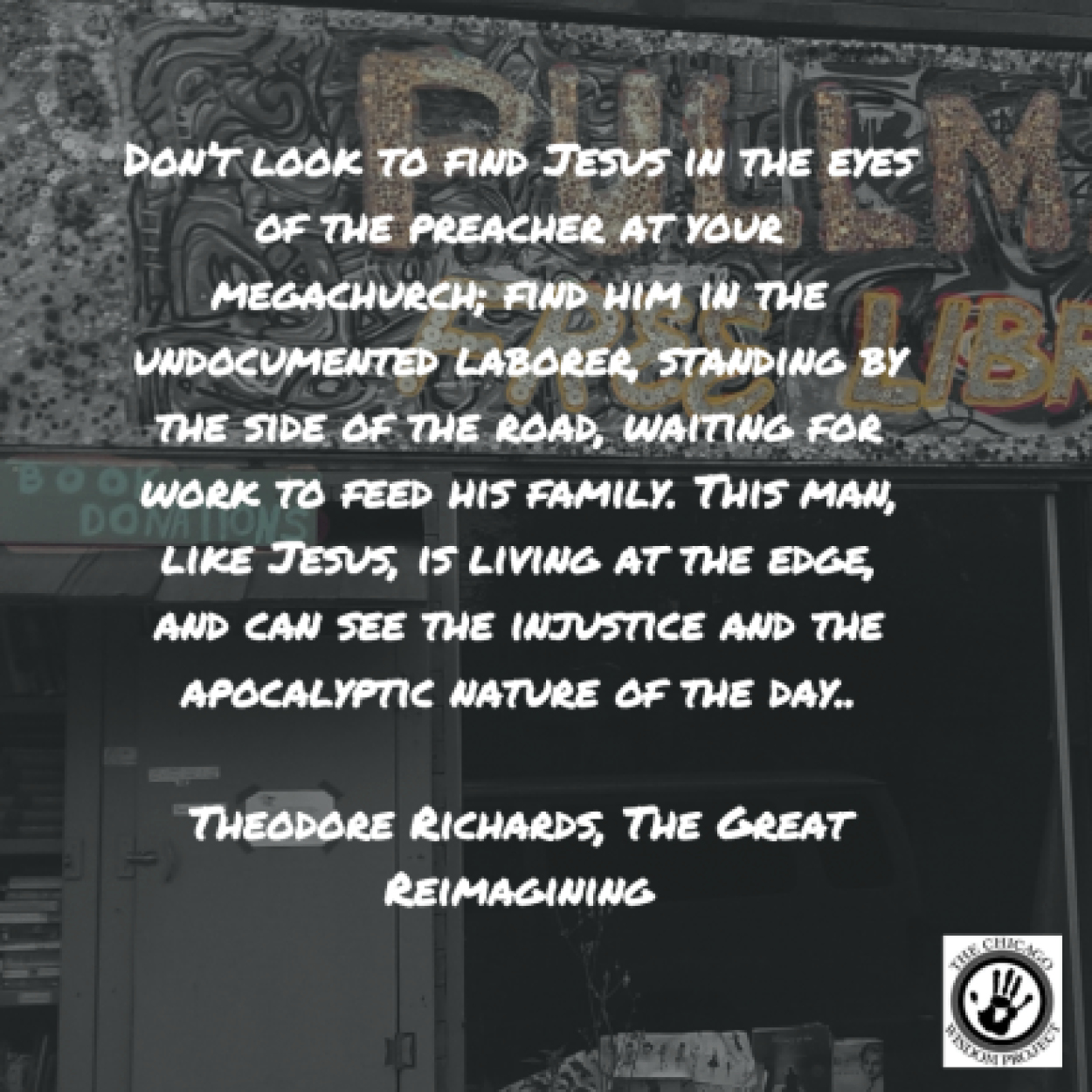
The Indebted
The last group is found at every level of every society, and consequently has perhaps the greatest potential to undermine global Capitalism. These are the indebted. During the Occupy Wall Street Movement, the indebtedness of the youth was a major issue. Increasingly, young people are pressured into taking out costly loans for an education of which the value is uncertain. Feeling trapped upon graduation by these burdensome loans, the youth no longer have the freedom to explore their world, to travel, to create something meaningful, to take risks.
Other members of society are faring no better. Consumer debt has never been higher; skyrocketing medical costs are leaving the sick particularly vulnerable to indebtedness. Farmers, pressured or forced to buy the newest seeds and the latest technology, are trapped by big agribusiness in cycles of debt. They no longer feel that they have the freedom to grow diverse and locally-based crops.
Nations suffer just as individuals do. The indebtedness of African countries, often due to policies of the Global North through such agencies as the IMF, has been well documented. It remains a key factor in keeping Africa poor and under the thumb of their former colonial oppressors.
But this is not a new phenomenon. In Jesus’ time, indebtedness was one of the great issues facing his people. Already at the margins of society, indebtedness could push a family over the brink. They could become enslaved or destitute. Indeed, the mass incarceration referred to above cannot be separated from the indebted. An indebted person is truly one with her back against the wall. Jesus confronts this in Matthew’s version of The Lord’s Prayer: “Forgive us our debts, as we forgive our debtors.”
Jesus seemed to have perceived that debt was also a spiritual crisis. That is to say, debt is something of the human imagination. First, while many have no choice but to go into debt, there are also others, particularly in wealthy countries, who feel pressure to do so. Increasingly identifying ourselves as consumers above all else, we buy things we cannot afford and don’t need. Moreover, indebtedness is an abstraction. African countries, like those individuals who owe money to insurance companies or banks, could easily be “forgiven”. This word – forgiven – is significant. It implies that the indebted have done something wrong, something sinful – an odd attitude for a civilization supposedly based upon a religion founded by a man who said, “Blessed are the poor.” It speaks to the religious nature of Capitalism, equating poverty with sinfulness and wealth with salvation.
The Abstract Economy
In general, we have created an economy based on abstraction. That is to say, money, which once was used merely as a way to ascribe value to things, has become an end in itself. As mentioned above, space is no longer an issue in our economy. Goods are moved without regard to the ecological cost. In fact, things themselves are no longer primary. Money is. The 2008 financial crisis, in which increasingly abstract units of mortgages were sold throughout the world’s economy, infecting the entire planet with certain bad or “subprime” mortgages, demonstrates the dangers of an increasingly abstract economy.
But there is a deeper, and more apocalyptic, danger in the abstract economy, in a civilization based no longer on things we can touch and feel. Just as the Protestant Reformation and the broader movement of Modernity led us to find meaning in the abstract, the Modern economy has led us to find value in the abstract. Some abstraction, of course, can be helpful. It can help to spread prosperity. It can bring goods to places that otherwise wouldn’t have them. It can bring help to make ideas applicable in different contexts. But context is important, and completely losing touch with it can deprive us of some of that which makes life so rich.
The economic crisis today, as in Jesus’ time, is revelatory in the sense that it pushes people to the edge. Through those at the edge, the disinherited, a deeper truth about our world is revealed. Jesus understood that a new world was only possible with the creative energy of those pushed to this edge.
So we stand here at the edge of an idea, of a Capitalism that has become so ideological that it approaches a religion in its dogmatism, a dogmatism that threatens to destroy the very flexibility and openness that makes it possible. Freedom has become an idea that enslaves, that obfuscates a clear understanding of our economic condition. Its priests protect against all heresies with a means of control far more powerful than any inquisition: the idea that our system is natural and rational. Beliefs most deeply held come to us in the mysterious form of what we tend to call reality.
The Italian Marxist theorist and activist Franco “Bifo” Berardi suggests that the root of this skewed view of the economy is found in language. A system of abstract finance is expressed in a similarly abstract language. It is the language of the disembodied, the machine. The way forward, according to Berardi, is to return to the poetic. That is to say that the Citizens United decision and the Right Wing order it supports cannot be addressed merely by pleas to a more rational approach – although it would be more rational to, say, create an economy that accounted for the real, ecological cost of things – because the theological assumptions we have made conflate that order with Reason itself.
One challenge we face is that, as was the case for Martin Luther (with the printing press), the information revolution of our day (the Internet) leads us to a more disembodied life. Perhaps we do not need 95 theses nailed to doors of the Supreme Court – much less to blog about it – but stand at its doors and cry out with our embodied, poetic voice.
A New Economy
What would a new economy look like? It is difficult to see beyond Capitalism because it is so woven into our worldview. Lifting the veil requires something like an apocalypse, an imaginative effort far more complex than merely changing a few government policies. It is an opposition Capitalism that lies at the root of many fundamentalist movements. (Indeed, it should be noted that Capitalism does far more harm on the planet today than terrorism). But fundamentalism represents a failure of the imagination – and speaks to the challenge of this imaginative effort in the stifling conditions of consumerism. Indeed, there is nothing wrong with markets per se. Rather, our challenge is to create economies that recognize ecology as primary and that see life – including the non-human, including vibrant and diverse cultural activity, and including a rich interior life – as more important than consumption.
An economy is an expression of values. And values and spirituality go hand in hand. Our spiritual lives – that is, how we understand our place in the cosmos – give rise to our systems, including the economy. Capitalism and Calvinism go hand in hand. When we believe that we are fundamentally individuals, in competition with one another, and that we are not connected to the Earth but ultimately separate from it, we will have an economic system that reflects that.
I’ve noticed that most people are at least as unsure as I am about what a new economy might look like. This shows how deeply immersed in Capitalism we are. It’s actually pretty hard to imagine another system. Marx tried, and the Soviet model showed how difficult it really can be to implement another model. In order to avoid some of these mistakes, we would be well served by started with a deep examination of the values of a re-imagined spirituality rather than start with a new economic model. The hope would be that out of these values, a viable alternative can emerge organically.
The spiritual principle of equality is an easy place to start because most of us have some intuitive sense that at least humans are all of equal value. There is a specific, if partial, remedy to this problem within the parameters of the current system. A global tax on capital could be implemented, which would provide money to alleviate poverty and to allow for investment in alternative energies. It would, moreover, reduce the absurd overconsumption of the wealthy. Such an action, while admittedly politically difficult on a global scale, must be global because (a) climate change is global and (b) the current economy is globalized; money moves freely.
For this value to truly take root would require more, however, than a vague sense of equality. At its core, the radical opposition of such prophets as Jesus to inequality must be fully understood and embraced as a spiritual principle. A global tax on capital must be implemented because inequality leads, ultimately, to the capacity of one person to buy another and the compulsion of another to sell herself. Whether we call this a “free market” or slavery is mere semantics; it is the inevitable result of an inegalitarian system.
Second is the spirituality of meaningful, embodied work. Each of us should be able to find both meaning in our work and engage our bodies in the process of production. Sitting in cubicles, moving money around to make more money for the rich not only exacerbates inequality; it also moves us further and further from real and meaningful work. It drives us deeper into abstraction and alienation from the natural world.
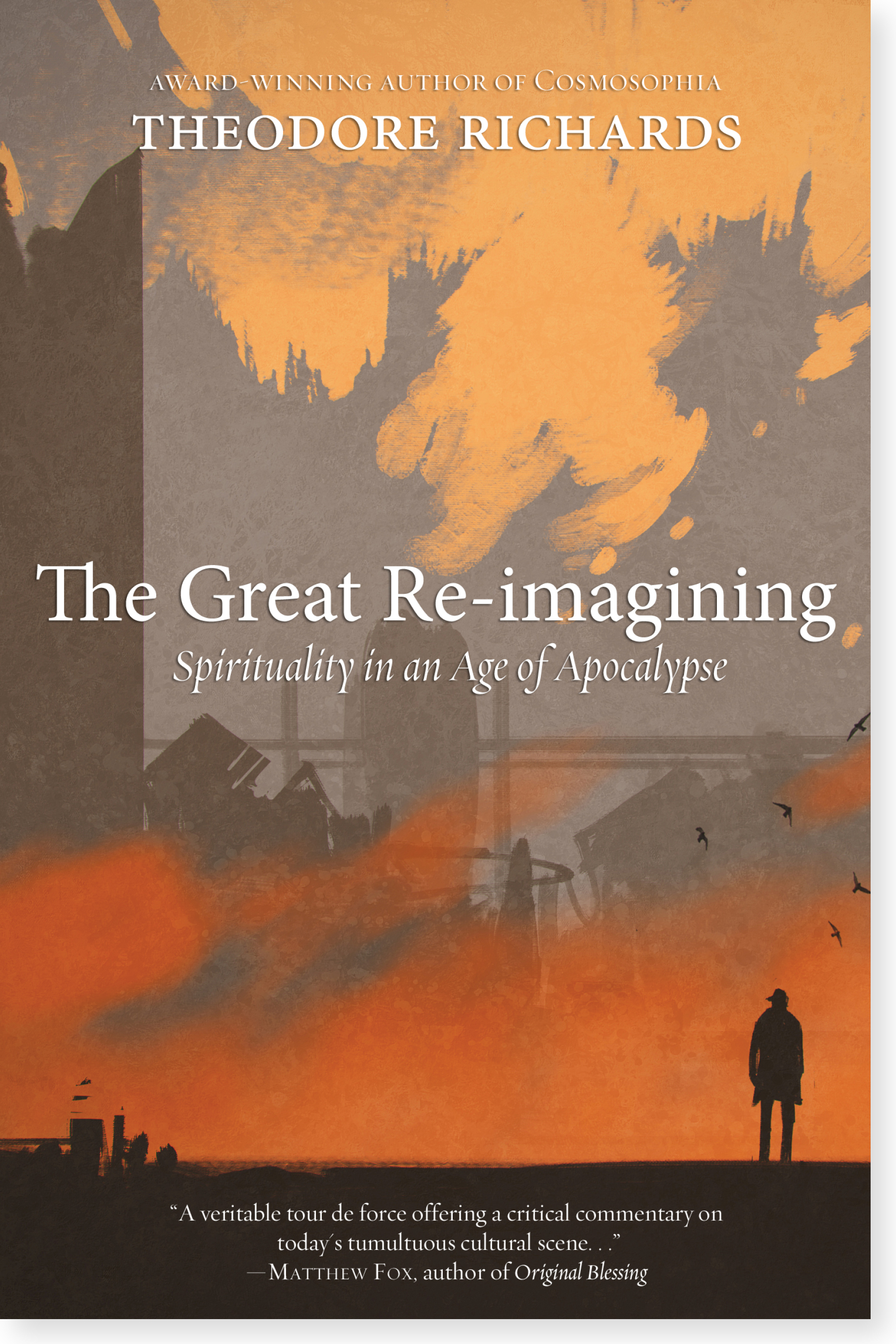
Third is the Spirituality of enough. On an individual level, many of the great traditions embrace the notion that true fulfillment is found not in always looking for more, but in recognizing that we already have enough. But what would this look like on a collective, global scale? It is profoundly important to examine this question as we approach the end of Capitalism, for the simple fact of the end of Capitalism is that we can no longer have a growing economy on a finite planet stretched to its very limit. The apocalyptic nature of this moment lies largely in this fact – that the cosmology of consumption is ending.
This challenges the core values of our economy. For example, the concept of the GDP is used by politicians of all political persuasions to indicate the health of an economy. Of course, this indicator does not account for externalities: growth is always good, even if we destroy our forests and seas in the process, even if it incarcerates millions and starts wars. Alternatively, a zero-growth economy would account for the true cost of things. The profits of an oil company that destroys the planet would not be viewed as profits at all, because their true costs far outweigh their benefits.
Lastly, the spirituality of interconnection is a way to value all beings. The essential problem with our economy is that we value things – from humans to forests – in terms of money rather than in their intrinsic value as beings. The forests are not valuable because they produce wood, or even because they are a nice place for people to go camping. They have value just like you and me, because we exist and have the right to be.
There is always an alternative. But when a system is so deeply embedded in the psyche, a profound act of the imagination is required. And until we challenge the values behind Capitalism, there will indeed appear to be no alternative. Of course, total collapse will bring about a change as well. Whether Capitalism ends through a re-imagining or a collapse, or both, it has reached its apocalyptic moment.
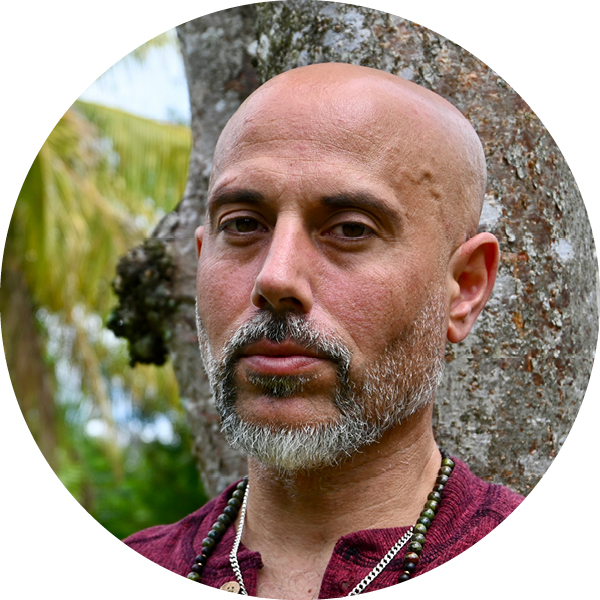
Re-sources
Re-Imagining Education

Empowering educators to take a deeper look at the stories told in our schools and to re-imagine them in transformative and
nurturing learning spaces.
Learning Opportunities
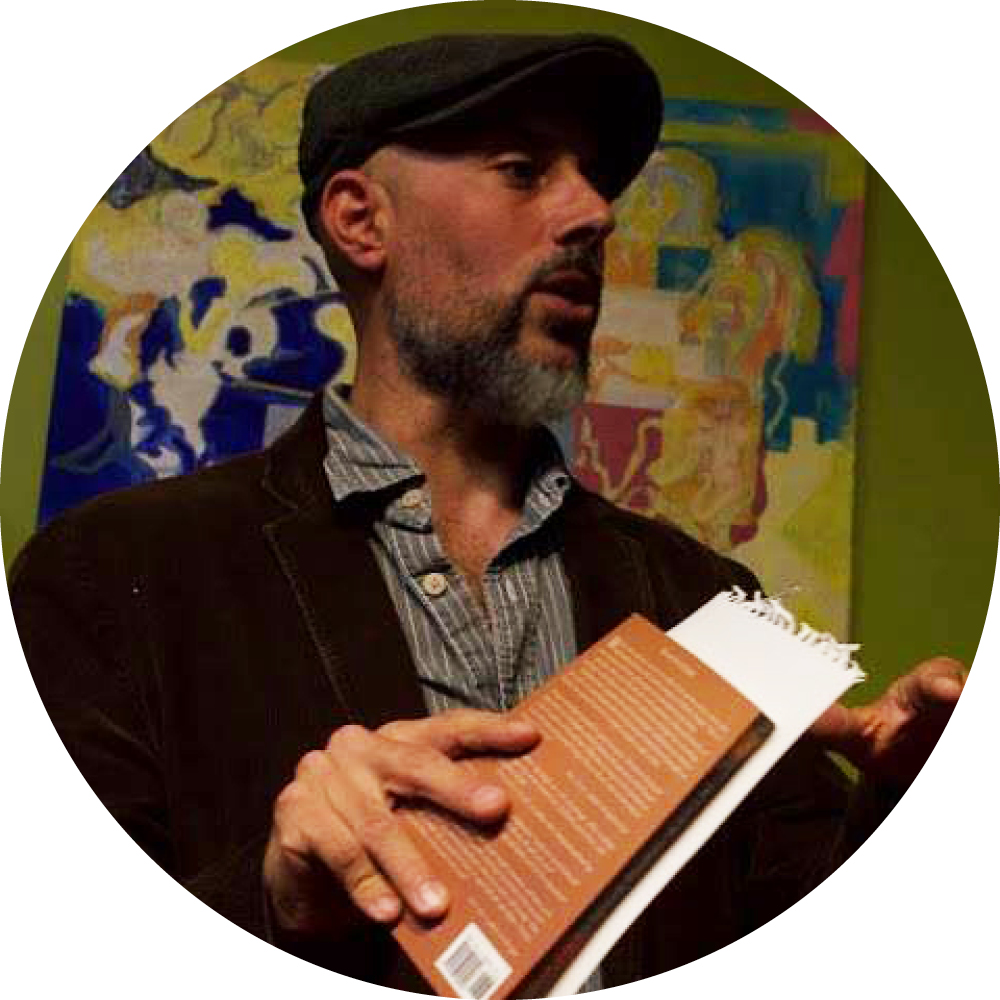
Classes, workshops, and lectures that help to empower people to re-imagine who they are and their place in the world.
Get Involved

Help the Chicago Wisdom Project realize its mission to re-imagine education through holistic programming that transforms individual, community and world through creative expression.
